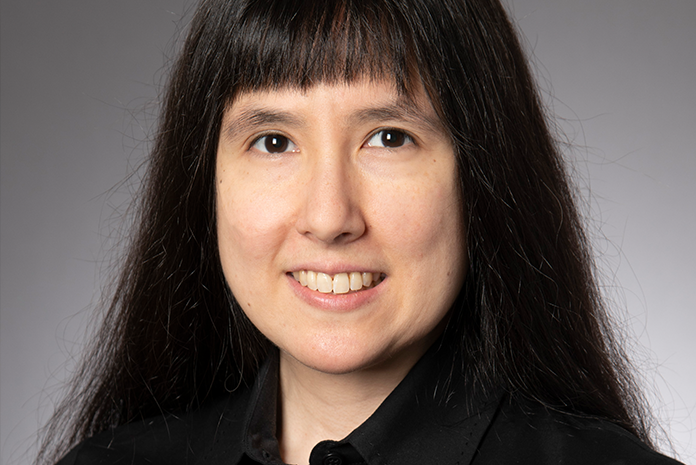 Kate Isaacs. Associate Professor, Computer Science
Kate Isaacs. Associate Professor, Computer Science
Dr. Isaacs joins the SCI Institute from the University of Arizona, where she was an assistant professor in the department of computer science since 2016. Dr. Isaacs is a recipient of a Department of Energy Early Career Research Program award in 2021 for research on visualizing program behavior in high performance computing contexts and a National Science Foundation CAREER award in 2019 for visualizing networks derived from computing systems. In 2015, Dr. Isaacs received her PhD in computer science from the University of California at Davis.In her research, Dr. Isaacs develops visualization approaches that address the complex analysis scenarios of active research teams, often with application to software and computing systems. She works closely with collaborators from those research teams to identify and push past the limitations of available visual tools and develop more interpretable and scalable visual representations that fit into their workflow. Dr. Isaacs deeply believes that pushing past the analysis challenges of exploratory analysis in large and complex data requires meeting users where they are and thus her solutions aim to identify and then computationally enhance their analysis processes.
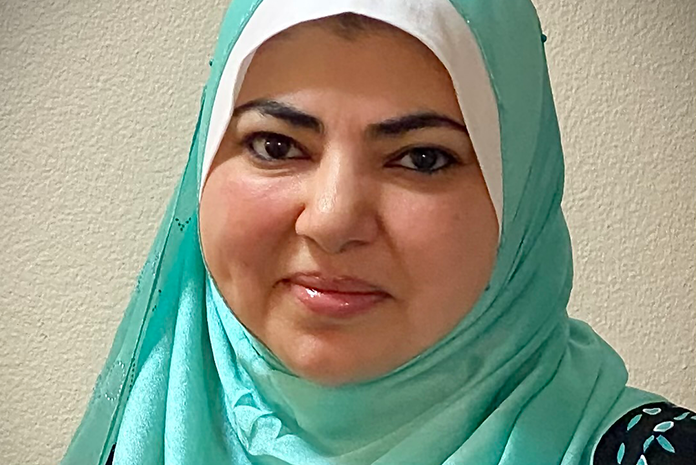 Shireen Elhabian. Associate Professor, Computer Science
Shireen Elhabian. Associate Professor, Computer Science
Dr. Elhabian received her Ph.D. in Electrical and Computer Engineering from the University of Louisville in 2012, in the field of statistical and mathematical modeling of photographic images, with a focus on computer vision and medical image analysis. She was a postdoctoral fellow from 2013 to 2016, and a research scientist from 2016 to 2017, both at the SCI Institute, University of Utah. Before joining the tenure-line faculty, she was a research computer scientist within the SCI Institute and a research assistant professor with the School of Computing from 2017 to 2022. She is also an adjunct assistant professor in the Department of Electrical & Computer Engineering at the U. Dr. Elhabian has established her research program around biomedical problems that entail collaborating with scientists and domain experts in different disciplines and backgrounds to conduct interdisciplinary research projects. Her research spans foundational and translational advances at the intersection of image analysis and statistical machine learning with a focus on clinical and biomedical applications.
Dr. Elhabian’s vision is that deployable image analysis systems empowered by machine learning can transform the way biomedical researchers and clinicians interpret imaging data in an objective, thorough, efficient, and reproducible manner, thereby maximizing the benefit-to-cost of imaging technologies and enabling early diagnosis and patient-specific treatment and prognosis. Her long-term goal is to accelerate the adoption and increase the clinical utility of machine-learning-based image analysis systems. Progress in this domain will mitigate critical bottlenecks in attaining an expert-level understanding of the complexities of imaging data and have a broad impact in a range of clinical and biomedical research disciplines. To attain this goal, Dr. Elhabian has been establishing foundational methods to solve complex problems in image analysis and quantitatively interpret imaging data using minimal expert supervision, then translating these methods to application domains through robust, flexible, and usable open-source software packages.
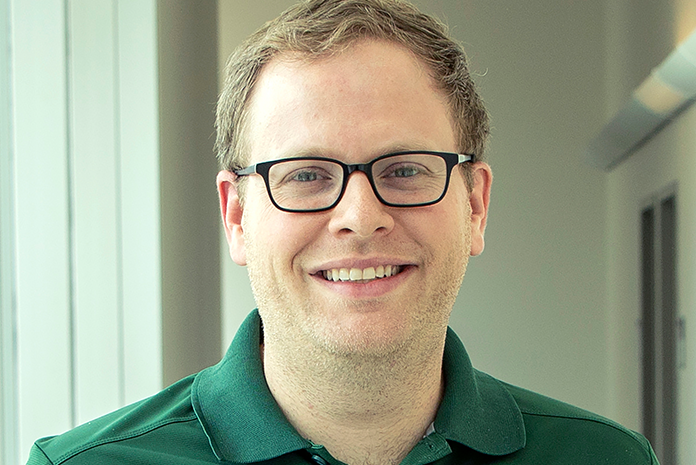 Paul Rosen. Associate Professor, Computer Science
Paul Rosen. Associate Professor, Computer Science
Dr. Rosen joins the SCI Institute from the University of South Florida Department of Computer Science and Engineering, where he was an associate professor. Dr. Rosen received his Ph.D. from the Computer Science Department of Purdue University in 2010. Following that, Dr. Rosen served as a research assistant professor at the SCI Institute before departing in 2015. Along with his collaborators, he has received awards for best paper at PacificVis 2016, IVAPP 2016, PacificVis 2014, and SIBGRAPI 2013 and honorable mentions at the VAST Challenge 2017 and CG&A 2011 best paper. He also received an Outstanding Faculty Award from the University of South Florida in 2020. His research has been supported by the National Institutes of Health, the National Radio Astronomy Observatory, the Defense Intelligence Agency, and five National Science Foundation (NSF) grants, including an NSF CAREER Award in 2019. Dr. Rosen is also the General Chair for IEEE VIS 2024, which will be held in Tampa, FL.In his research, Dr. Rosen studies approaches to improving the efficacy of visualization tools by utilizing a mix of human-centered design and geometry- and topology-based methods to extract and emphasize important data features. He has studied these techniques in the context of many data types, including scalar and vector fields, multidimensional data, and graphs. Further, these techniques have been used to solve important problems in wide-ranging collaborations, including in affective computing, nuclear engineering, biomedical engineering, radio astronomy, software performance analysis, and 3D printing. Dr. Rosen believes strongly in the need for visualization capabilities with robust theoretical and practical capabilities that simultaneously consider the needs of visualization users and enable the process of developing insights about data that are as unambiguous as possible.
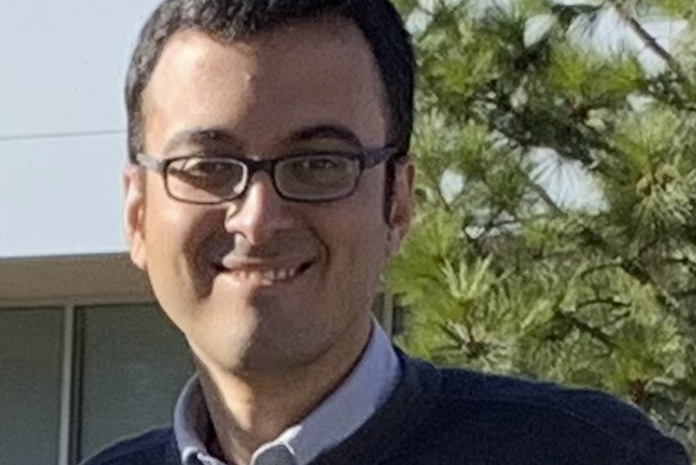 Amir Arzani. Assistant Professor, Mechanical Engineering
Amir Arzani. Assistant Professor, Mechanical Engineering
Dr. Amirhossein (Amir) Arzani received his BS, MS, and PhD in Mechanical Engineering from Isfahan University of Technology, Illinois Institute of Technology, and UC Berkeley, respectively. Prior to joining SCI, he was an Assistant Professor of Mechanical Engineering at Northern Arizona University (NAU) for 5 years.In his research, Dr. Arzani develops computational models to fundamental understanding of blood flow and cardiovascular disease. Broadly, he is interested in understanding the role of blood flow in the heart and cardiovascular system, developing predictive computational models that can predict disease, and using modern data-driven modeling techniques for improving the fidelity and accuracy of current experimental and computational blood flow models.
His research is highly interdisciplinary and integrates fluid mechanics, solid mechanics, mass transport, scientific machine learning, computational mechanics, and dynamical systems theory. Dr. Arzani is also interested in fluid flow problems beyond cardiovascular flows, for example chaotic advection in unsteady flows, respiratory flows, and convective heat transfer.
Dr. Arzani highly supports student success in research. Prior to joining SCI, his students at NAU had published 12 first-author journal papers. In 2022, he received NAU’s College of Engineering, Informatics, and Applied Sciences Distinguished Mentorship Award. Dr. Arzani has recently received an NSF CAREER award from NSF’s Office of Advanced Cyberinfrastructure.
Dr. Arzani’s research fits with the key strengths of SCI (imaging, visualization, and scientific computing). Specifically, Dr. Arzani and his collaborators are creating machine learning approaches for improving blood flow quantification from medical imaging. Additionally, Amir has previously collaborated with SCI alumni and visualization experts in surface, vector-field modeling and visualization. Finally, his research heavily involves a wide range of scientific computing approaches, such as computational mechanics and scientific machine learning.
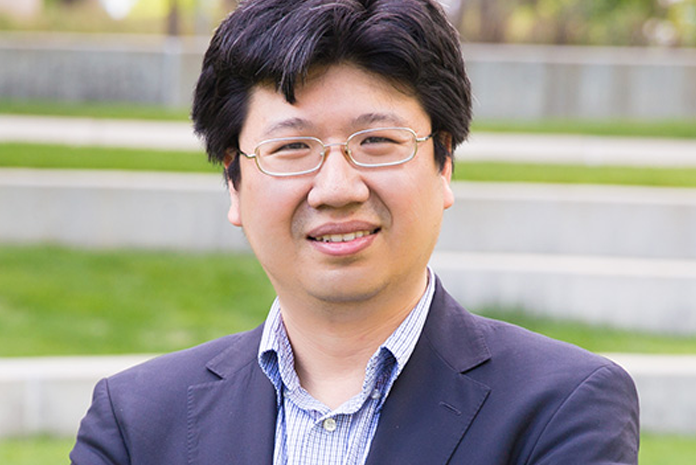 Aik Choon Tan. Professor, Oncological Sciences
Aik Choon Tan. Professor, Oncological Sciences
Aik Choon Tan, PhD, has been appointed senior director of data science at Huntsman Cancer Institute, professor at the University of Utah (U of U) department of Oncological Sciences, member of the Scientific Computing and Imaging Institute, and Jon M. and Karen Huntsman Endowed Chair in Cancer Data Science. He will also serve as a member of the research executive committee and research leadership council within the Comprehensive Cancer Center at Huntsman Cancer Institute. He will play a key role in the close collaboration between Huntsman Cancer and the SCI Institute and will serve as an affiliate SCI faculty member. Tan received his Bachelor of Engineering from the University of Technology Malaysia, and earned his PhD from the University of Glasgow in computer science and bioinformatics. He received post-doctoral fellowships at Johns Hopkins University Whiting School of Engineering and School of Medicine.
As a scientist in cancer translational bioinformatics and cancer systems biology, Tan’s research focuses on computational and statistical learning methods to overcome treatment resistant barriers in cancer. He is most interested in research that goes from the lab to bedside, providing data-driven precision oncology for patients. With grants from the National Institutes of Health and Florida Biomedical Research Program, Tan has focused his research on understanding tumor microenvironment such that effective drug combinations could be delivered to patients based on their individual genomic profiles. He has published more than 200 articles.
Tan previously served as vice chair of the Department Biostatistics and Bioinformatics at Moffitt Cancer in Tampa, Florida.
